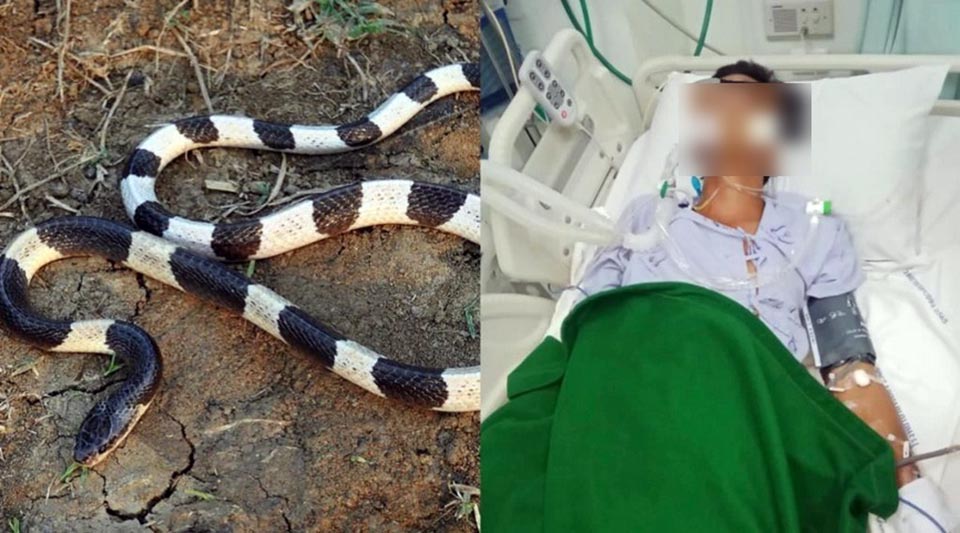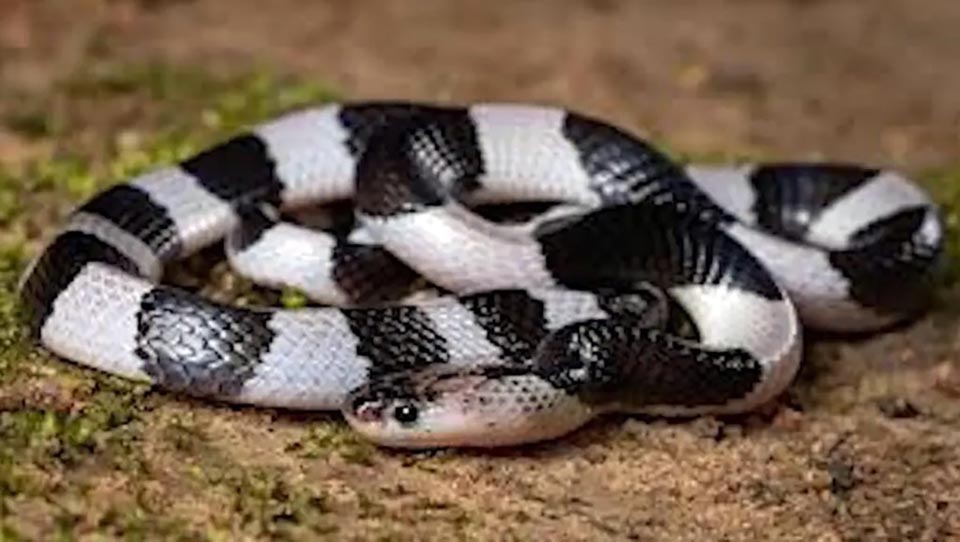
RAYONG, Thailand – An 18-year-old man is in intensive care after being bitten by a highly venomous Malayan krait (locally known as “Ngu Thap Saming Khla”) and initially misdiagnosed at a local hospital in Rayong province. Despite showing early signs of envenomation, he was sent home — only to collapse hours later. Rayong public health officials have defended the hospital, stating that initial blood tests showed no signs of venom. The patient is now stable but remains under close observation with assisted breathing.
On May 8, a Facebook post went viral detailing how a young employee was bitten by a snake around 1 a.m. and taken to Wang Chan Hospital. The post claimed doctors dismissed the case as non-urgent, prescribing only painkillers and antibiotics before sending him home. By 9 a.m., the man was unable to speak or breathe properly. He was rushed back to the hospital, where further testing revealed he had been bitten by a venomous snake — later confirmed to be a Malayan krait.
The Rayong Provincial Public Health Office responded, clarifying that the patient first arrived at 2:20 a.m. on May 7 with minor abrasions on his right little finger and no signs of systemic envenomation. He was monitored for two hours and discharged with instructions to return in the morning for follow-up blood tests. When he returned at 8:14 a.m., symptoms had worsened — including drooping eyelids and slurred speech. Doctors intubated him and transferred him to Rayong Hospital, where he received antivenom. As of May 8, his vital signs were stable, though he remains in the ICU with assisted breathing.
Wang Chan Hospital has contacted the employer to arrange a meeting on May 13 to discuss the incident further.
Herpetologist Nirut Chomngam, head of the Venomous Animal Research Group, explained that Malayan kraits possess the most potent venom drop-for-drop of any snake in Thailand. However, severity depends on the bite location and victim’s physiology. Due to the snake’s small fangs, many victims may not feel the bite or show immediate symptoms — but the venom can slowly paralyze organs, leading to death if untreated.
The snake is found across Thailand, particularly in cassava fields and rice paddies, though rarely in Bangkok. In urban areas, monocled cobras are a greater threat during their egg-laying season. Residents are advised to seal any holes and monitor for rodents, which attract snakes.
Meanwhile, Queen Saovabha Memorial Institute has announced it will temporarily suspend accepting reticulated and Burmese pythons due to overcrowding. Other snake donations are still being accepted. (TNA)










